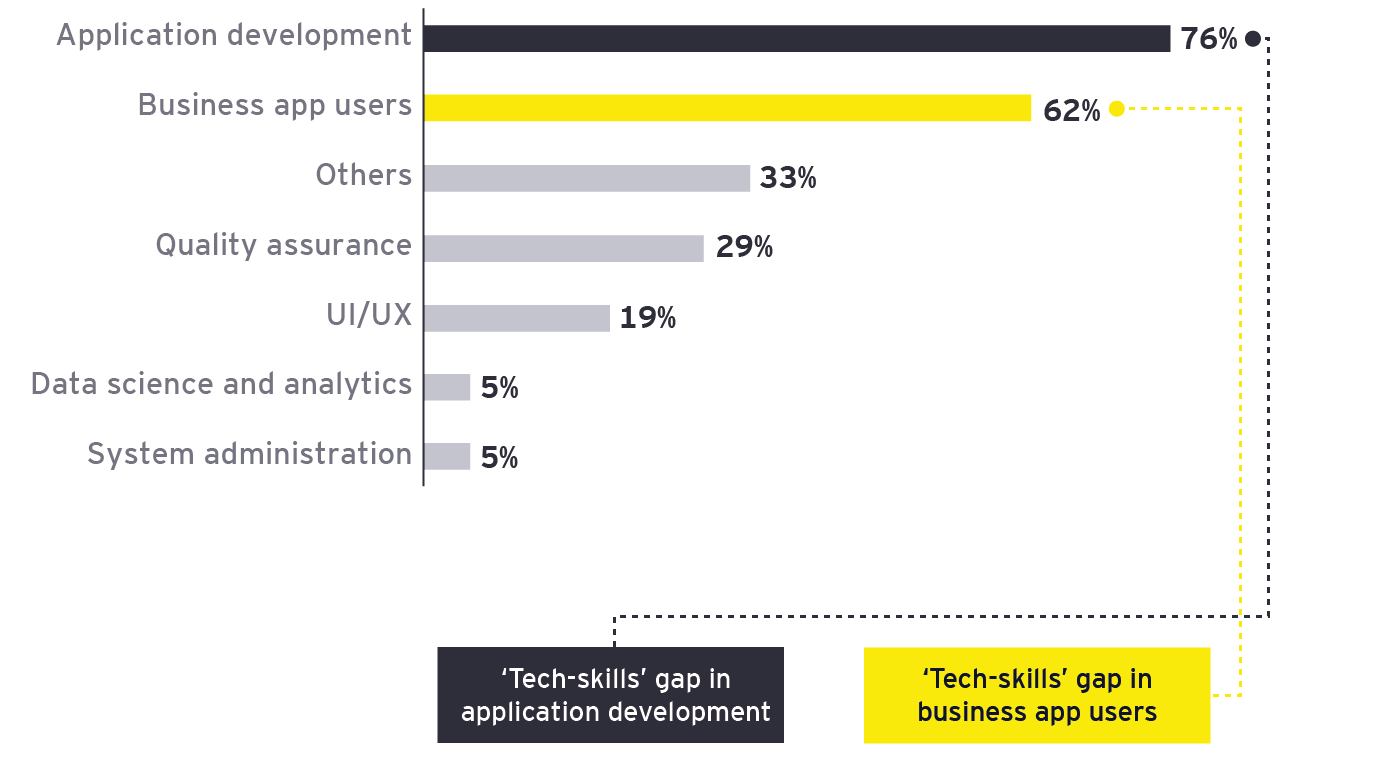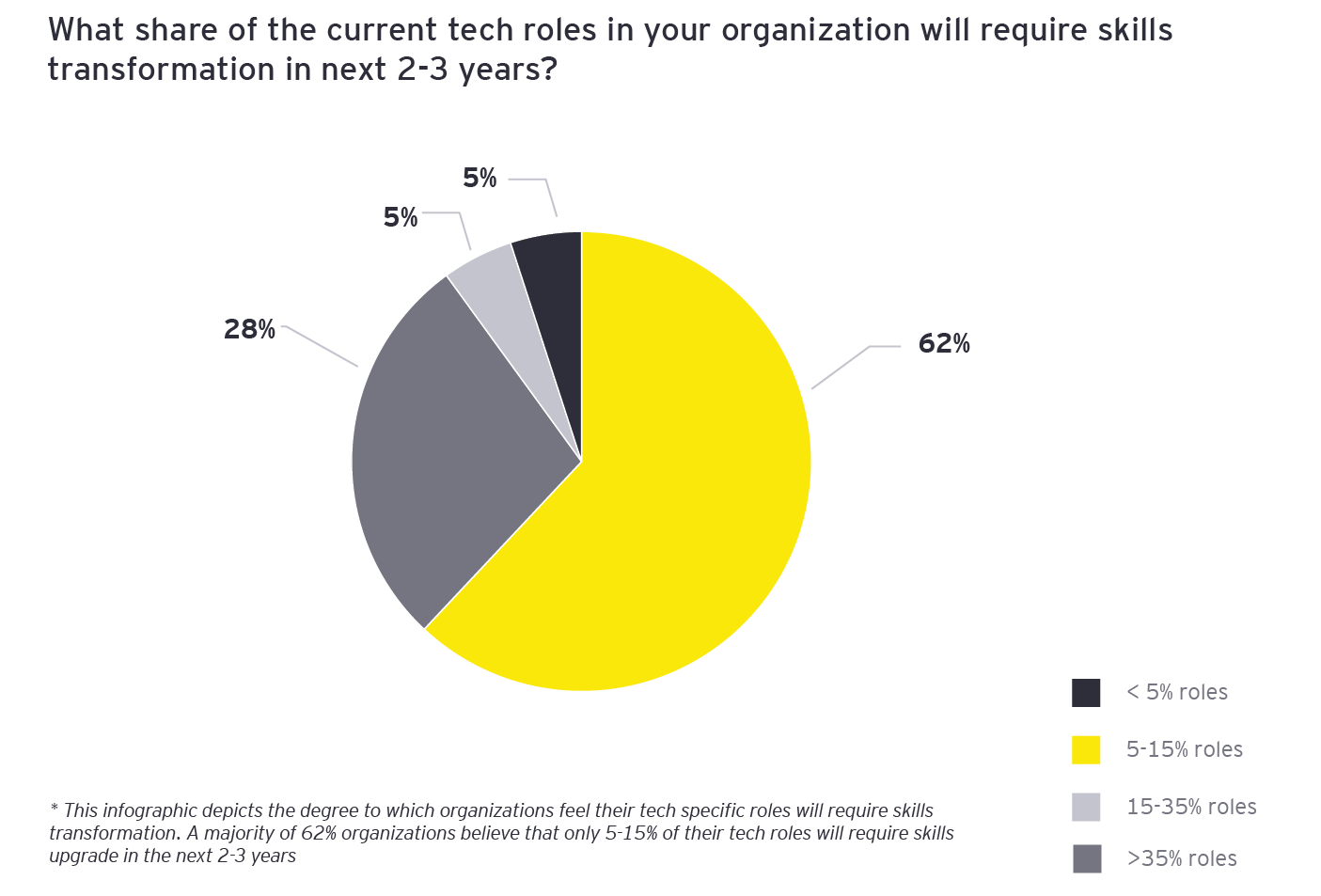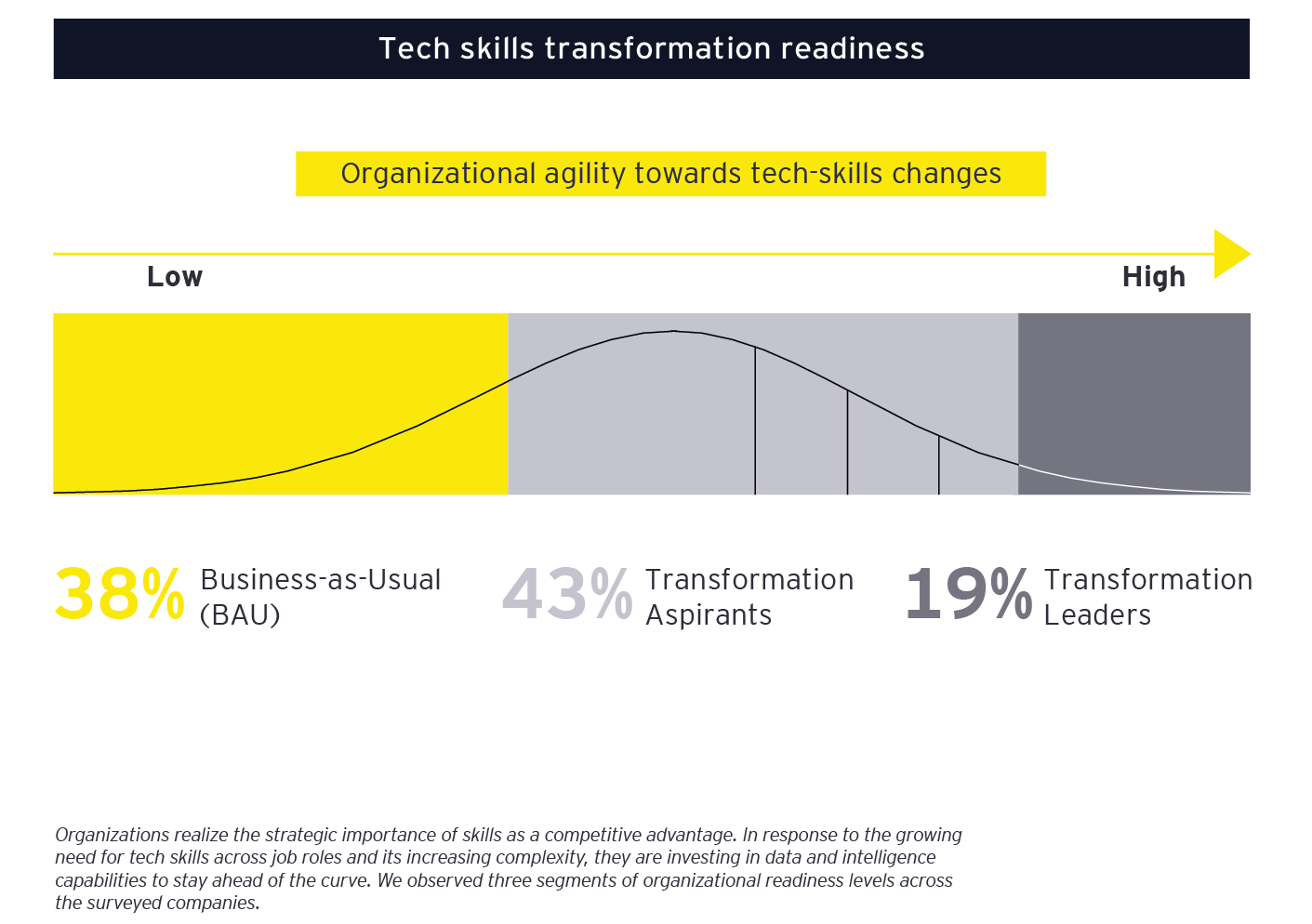Request access to the "Tech skills Transformation - Navigating the future of work in 2025 and beyond" Report
Want to read the full report? Sign up for access.
Related content
Summary
Tech skills are in demand for every job role, regardless of industry or function – leading to the demand for new generation of "business application power users" and "power developers". Complexity of tech skills required has increased in terms of the number of platforms and depth of functionality, necessitating revamp of tech skills across job roles. Companies are investing in developing real-time visibility into the organizational inventory of skills at an employee level – to enable data-driven decisions for fulfilling the tech-skills demand.





